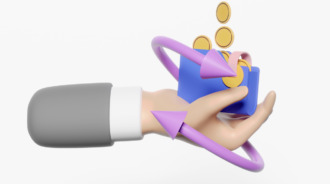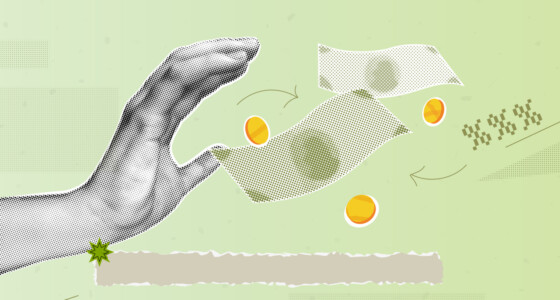

In the financial world, the terms like “share”, “debenture”, and “bond” are often used during conversations and finance reports. However, these terms are still unknown to most people, creating confusion for even the most financially savvy ones. What exactly do these terms mean?
Today, we’ll deeply understand these financial instruments and reveal how they work. These terms have a significant use for your financial well-being and the economy. Our goal is not just to tell what debentures mean but to provide a beyond-the-surface-level understanding of how these instruments work and influence investment-based decisions globally.
Share vs. Debenture: Key Differences Explained
Shares and debentures are two separate types of financial investments. Companies mostly use these instruments to raise capital. Even though both represent investments in a company, there is a significant difference between share and debenture in terms of nature, risk profiles, and rights. Keep reading to know the key differences between shares and debentures.
1- Ownership vs. Debt
Shares: When someone buys shares of a company, they are then a partial owner or shareholder. You have a stake in the ownership of that business as a stakeholder. You may be entitled to voting rights and a share of its profits as dividends.
Debentures: As a debenture holder, you are the lender to the company. When someone invests in debentures, they are just lending money in exchange for interest payments for a specific amount of time. They will also get the amount they invested by a specified date. Debenture holders do not have no ownership or voting rights in that company.
2- Risk and Returns
Shares: Being a shareholder is riskier than being a debenture holder. Stakeholders must experience both the gains and the losses of the company they invested in. They may get dividends when the company gains a profit, but there cannot be a guaranteed regular income, and the share prices can be volatile, too.
Debentures: Debenture holders are creditors of that business. It means they have a predictable income through a fixed interest rate. Their invested amount is safer than the equity investments as it is repaid in full, assuming that the business does not default.
3- Voting Rights
Shares: Shareholders have voting rights in the decision-making of that company’s processes. The number of votes depends on the amount of shares they hold, giving larger shareholders more influence in major business decisions.
Debentures: Debenture holders have no voting rights in the company they invest in. They are not at all included in the business matters of that company, and they do not participate in the decision-making of that company’s management.
4- Priority in Liquidation
Shares: If the company you bought shares at goes bankrupt, as a shareholder, you are the last to get any asset remaining. This is because the company has to pay off all the remaining debts, including debentures. Shareholders are mostly at risk of losing their entire investment in any such situation.
Debentures: Debenture holders are considered creditors and are prioritized at the time of bankruptcy. They are among the first people to get their payments from any assets the company has left, making their investment less risky in such times as compared to shareholding.
Bond vs. Debenture: Key Differences Explained
There’s not much difference between bond and debenture. All debentures are bonds, but not all bonds can be debentures. Whenever a bond is not secured, it can be called a debenture. But this is just the American definition of a debenture. In the UK, a debenture is a bond secured by company assets. So, these terms are just interchangeable in some countries.
Debentures
Debentures mostly have a more specific usage than bonds. Even though debentures and bonds are used to raise capital, debentures are issued to meet the expenses of a future project or to pay for a business expansion that is supposed to happen in your company. They are just securities from debt and are a common way of long-term business financing.
Debentures can be either a fixed amount of interest coupon rate or a floating rate return to investors and will have a specific date to be repaid. If the interest payment is still not repaid, the company has to pay it back before they pay the dividends to the shareholders.
On the repaying date, the company has two choices of repayment. They may pay back in one fixed sum or installments. The installment plan is called debenture redemption reserve, and the company will pay the investor a fixed interest each year until the whole amount is paid back. The terms of the debenture will be mentioned in the documentation.
Bonds
Bonds are the most common kind of debt instrument. They are used by private businesses as well as by governments. They serve as an IOU between the investor and the issuer. An investor loans an amount of money in return for the promise to be repaid by a specific date. Usually, the investor also gets a periodic interest amount over the bond’s term.
In the world of investment, bonds are considered a safe investment method. Highly rated businesses or government bonds have a little risk, though. But, each bond, including the ones issued by agencies, will have a specific credit rating.
Generally, bonds are safe if investments are unexceptional with a guaranteed return rate. Mostly, professional financial advisors always encourage their clients to invest at least some percentage of their assets in bonds and increase the percentage as they retire.
Who Are Debenture Holders and What Are Their Rights?
Debenture holders are people who invest in a business by purchasing its debentures, which are a kind of debt instrument provided by businesses and governments to raise capital. Debentures are a kind of long-term borrowing for the issuers, and you get certain rights and benefits as a reward for lending their money. Here are some aspects of how debenture holding works and what rights do they have:
1- Creditor Status
Debenture holders have a creditor status of the company they hold a debenture in. While purchasing debentures, they lend money to the company, knowing it will be paid back with interest within the required time. This makes them different from shareholders, who are partial owners of that business.
2- Regular Interest Payments
One of the basic rights of debenture holders is to get regular interest payments from the issuer. These interest payments are mostly made after fixed intervals, such as every 3 months or once every year. They are mainly a source of income for debenture holders. The interest rate is fixed beforehand and specified in the terms and conditions.
3- Repayment of Principal
Debenture holders have the right to get the repayment of the investment amount once the debenture matures. This is the invested amount they lent to the business, and they get it back at the end of the term.
4- Security
Specific assets of the business back secured debentures. If the company goes bankrupt, secured debenture holders have more rights on the remaining assets than unsecured debenture holders. Unsecured debenture holders depend only on the general creditworthiness of the company.
5- Voting Rights
People who hold debentures cannot vote for any activity in the decision-making procedure of the company, as they do not own a share in the company. But, sometimes, debenture holders may be able to vote in certain areas of the business, mainly if any major issue affects their interest, such as changes to the terms of the debentures.
6- Conversion Rights
Some debentures have conversion options that let debenture holders convert their debt into company shares under some conditions. It can be great if the stock of the company is performing well.
7- Information Rights
Debenture holders may be able to access the reports and financial information from the company. They can also assess the financial health of the company and its ability to meet its debt obligations.
8- Preferential Treatment in Case of Insolvency
If the company goes through bankruptcy or insolvency, debenture holders have more rights to the company’s assets than the shareholders. Debentures are considered higher creditors and are supposed to be paid first from the available assets.

Types of Debentures: Secured, Unsecured, Convertible and Non-Convertible
There are several types of debenture. We have explained some of its types in detail below.
Secured Debentures
Secured debentures are secured by specific charges on a company’s assets. Also known as mortgage debentures, secure debenture holders can easily recover the invested amount and a higher interest amount on the assets of the company you invested in. For secured debentures, the company has to make a default in payment. Also, debenture holders have the right to recover unpaid dues from the property or asset they have mortgaged.
Unsecured Debentures
An unsecured debenture is a type of debenture where agreements regarding the terms and conditions of the debenture are outlined. Also, customers don’t have to pledge any property as collateral to clear the loan. As no asset is needed to be used as a security, these debentures have a higher interest rate. With unsecured debenture, lenders might be at risk. However, to reduce the risks, they often ask for a guarantee before investing the loan amount.
Convertible Debentures
Convertible debentures are bonds that can convert to company shares after a specific time. Convertible debentures are hybrid assets with the benefits of both shares and debentures. Corporations use these debentures as fixed-rate loans and pay fixed amounts of interest. However, the holders of convertible debentures can only hold the loan until its maturity and keep receiving the interest amount instead of converting the loan amount into shares.
Non-Convertible Debentures
Non-convertible debentures (NCDs) are the ones that cannot be converted into shares of the company. However, to compensate for the non-convertibility, investors get a higher interest rate on these debentures than the convertible ones.
Features and Characteristics of Debentures
Let us now discuss some major features and characteristics of debentures to understand them better.
1- Interest Rate
The coupon rate has already been decided. This is the rate of interest that the corporation will pay you as a debenture holder. You can choose if you want the coupon rate to be either floating or fixed. A floating rate will depend on a benchmark, such as the yield of the 10-year bond, and will change just as that benchmark changes.
2- Credit Rating
The company’s credit rating and debenture impact the interest rate the investors will get. Credit-rating agencies determine the creditworthiness of the government and company issues. They also inform the investors about the potential risks of investing in that specific debenture.
3- Maturity Date
As mentioned above, the maturity date is essential for non-convertible debentures. This date tells when the company needs to pay back the debenture holders. The company may pay them all at once or in installments. Most frequently, it takes the form of a redemption from the capital, in which case the issuer pays a one-time sum when the debt matures. Alternatively, the payment may be made using a redemption reserve, in which case the corporation makes regular payments until complete payback is made at the maturity date.
Conclusion
The option to choose one between shares and debentures is a critical decision that is to be made by the investors as each one has its own set of perks as well as disadvantages. Shares somehow let you take control over the company, but they come with higher uncertainty. Debentures are a more secure option with predictable income generating every month and a lower chance of risk.
Ultimately, knowing the difference between debentures and shares makes you more aware and informed to make the right investment choices, letting you shape your financial strategy better. Whether you want ownership and growth potential with equity or the path of lending and generating predictable income, you need to make a calculated decision keeping your financial aspirations and circumstances in mind.












